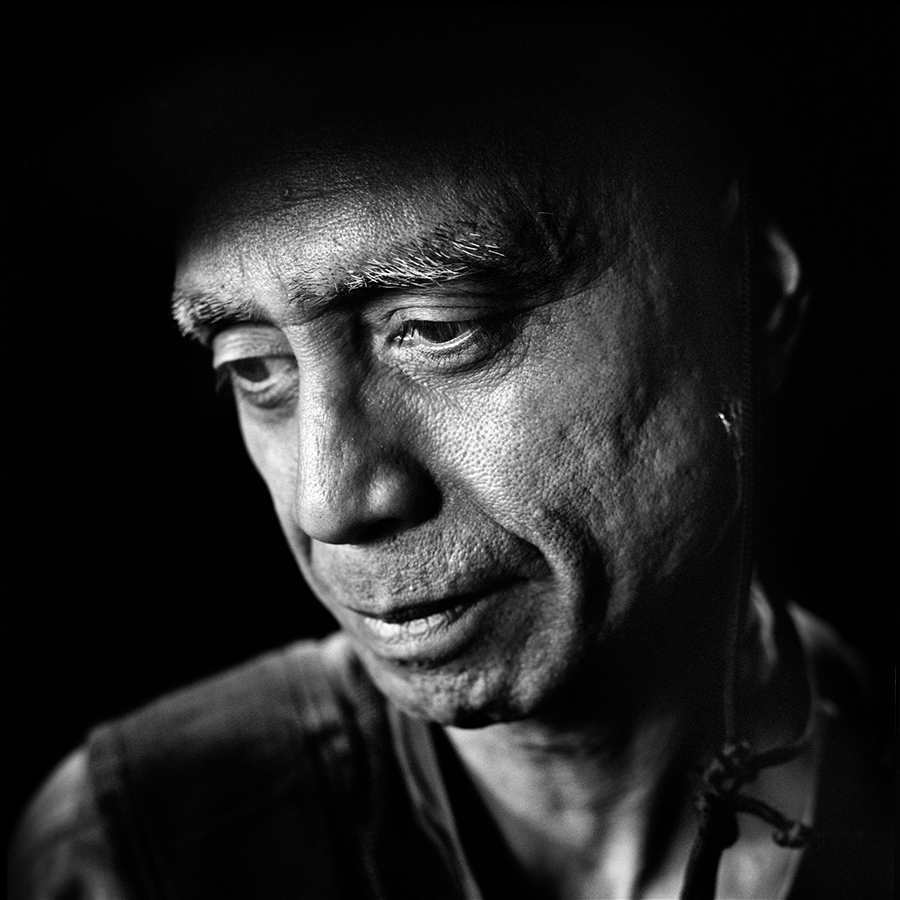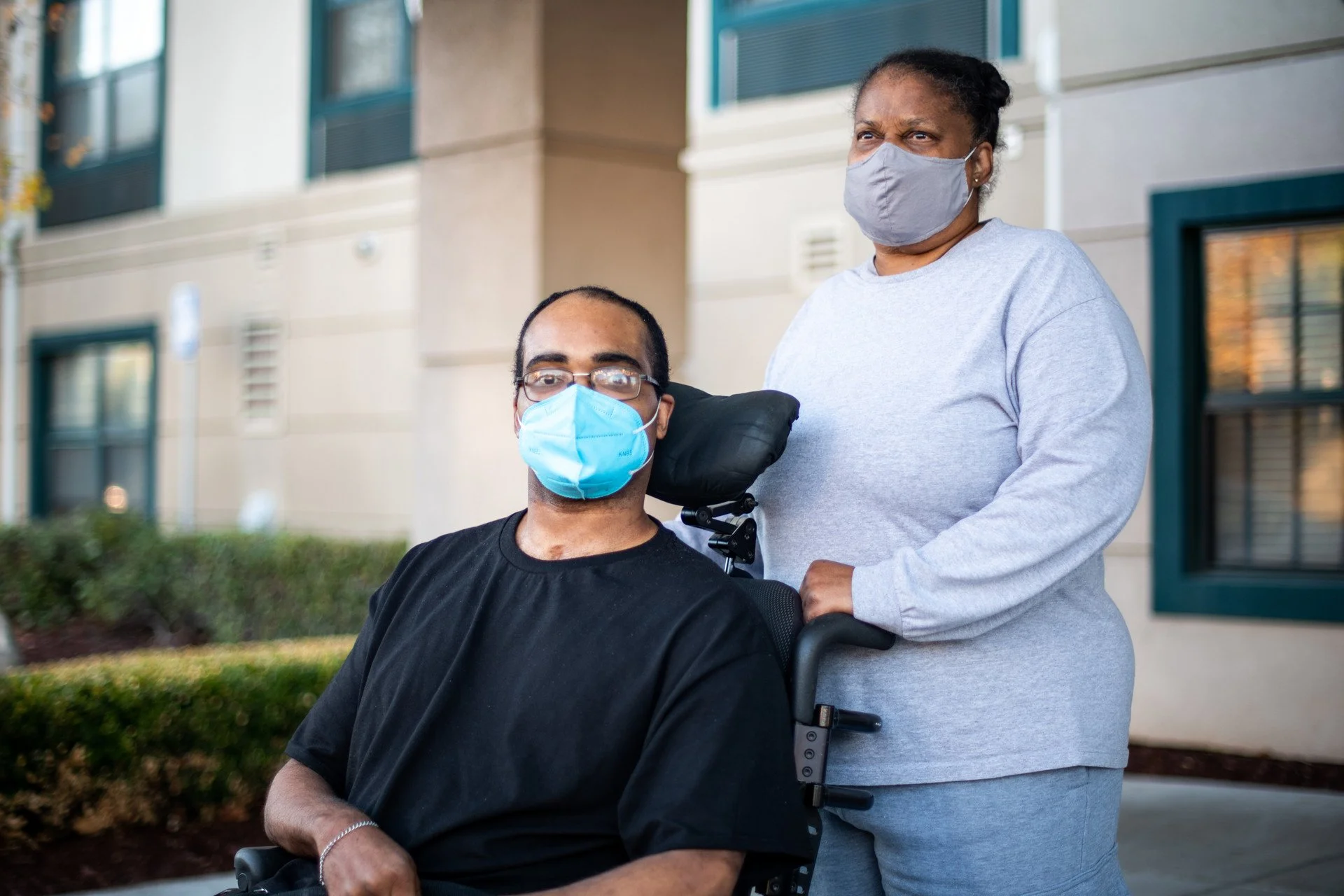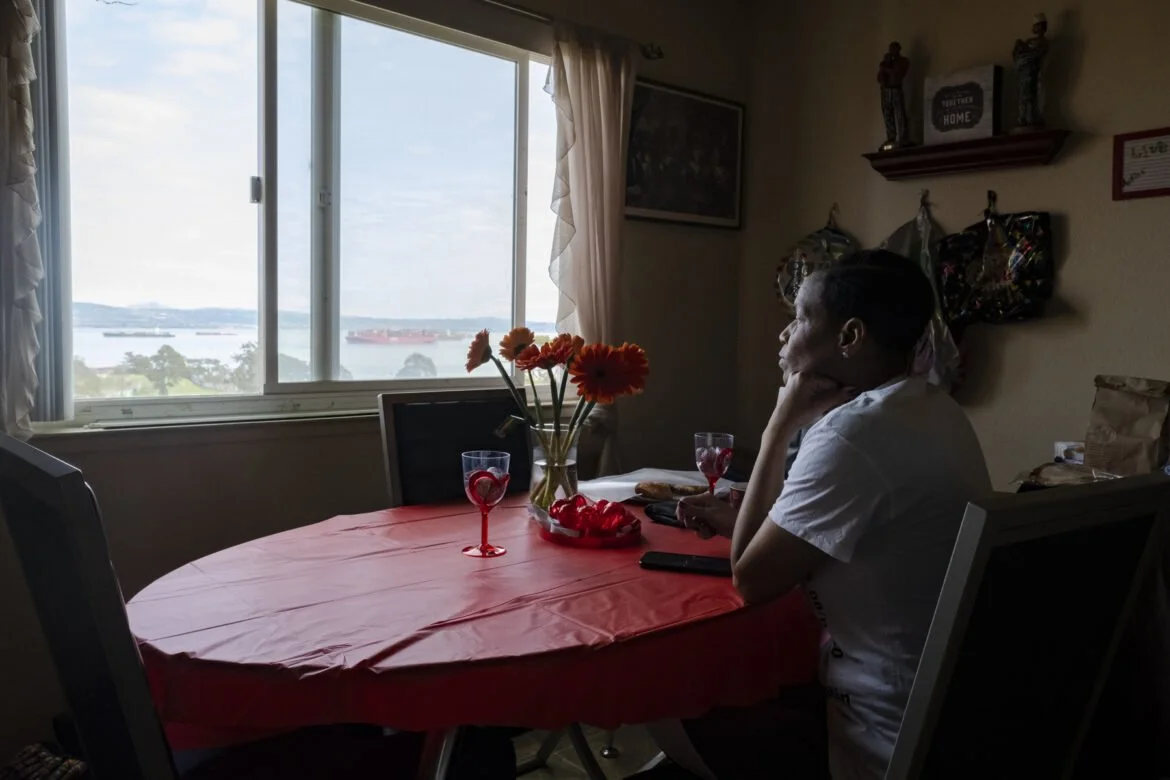“Benito Santiago, who recently turned 64, is facing an Ellis Act eviction. The soft-spoken musician, ballroom dance instructor and, by day, special education teacher, received an eviction notice in late 2013.”
Evictions are one of the fastest ways for San Franciscans like Benito to suddenly become homeless.
The city is facing an unprecedented challenge of decades-long crises of evictions and homelessness compounded by the COVID-19 pandemic and the end of the eviction moratorium. Yet, publicly-available data around these issues only show the tip of the iceberg due to poor survey methodologies and lack of transparency.
For every missing data point, services are more underfunded and overwhelmed.
It also means more people are at risk of becoming and staying homeless.
Source: Reported number from HUD.
“…PIT [Point-in-Time homeless] counts are widely understood to undercount the number of people experiencing homelessness by a significant margin—some experts say by half or more.”
- Bloomberg, “Is There a Better Way to Count the Homeless?”, March 4, 2019
“Kendrick, 70, and her 42-year-old son, Stanley Jackson III, were being evicted from their home in Richmond, even as a deadly surge in coronavirus cases was sweeping through the Bay Area and the country. They are now spending nearly $900 a week for a room at a nearby Extended Stay America hotel, and Kendrick says she has already depleted most of her savings: ‘And we don’t know where we’re going to go when we run out of money.’”
Eviction data tells an incomplete story.
In California, the eviction process begins when a landlord files a notice. The San Francisco Rent Board provides public data of these eviction notices from 1997 - 2021. What happens next is unclear.
After a tenant receives a notice, sometimes the tenant pays rent or moves voluntarily. Other times, it leads to complicated legal processes that is not documented on public record. As reported by the San Francisco Chronicle in Sept. 2021, “The Rent Board does not provide public data on unlawful detainer lawsuits, which landlords often file after an eviction notice if a tenant has not yet vacated a building. The board also does not release data on sheriff’s evictions, which happen when the Sheriff’s Department forcibly evicts a tenant.” In special cases, housing advocacy coalitions like Tenants Together can request public records in order to obtain more data such as unlawful detainer filings from 2014 - 2016 from the state Judicial Council.
One takeaway from the data is that more eviction notices were filed in neighborhoods that are home to many of the city’s low-income and vulnerable renters.
Scott Weaver, supervising attorney at the Eviction Defense Collaborative, said “the concentration of eviction notices in the Tenderloin and SoMa is likely due to that area having high population density and a large number of individuals with mental health and substance use issues.”
“Evictions really are a civil rights issue,” said Tim Thomas, research director for the Urban Displacement Project. “Thomas and his colleagues estimate that Black renters, like Kendrick, were more than twice as likely to be evicted, as compared to white renters. To predict the race of the person evicted, Thomas used an algorithm that combines last names with neighborhood demographics, and applied it to the 335 eviction records that included names.”
“Evictions are ‘going to be in a lot of the neighborhoods with a higher proportion of households of color, particularly Black households, and particularly low-income households,’ said Tim Thomas.”
“Keeshemah Johnson rushed her partner to the emergency room last summer. He [Maurice Austin] tested positive for COVID-19 in the ER. Austin died on Aug. 1, less than a week after Johnson took him to the hospital. Within days, Johnson said, their landlord began pressuring her to leave. On Sept. 15, she received an eviction notice, stating that she had five days to move out of their Hunters Point apartment.”
Homelessness data doesn’t include every homeless person.
The Point-In-Time Homeless Count and Survey is required for cities to receive federal funding for programs. However, experts say the census widely undercounts the homeless population by a significant margin of half or more.
There are two factors within the survey methodology that lead to the significant undercount: timing and accessibility.
The Department of Housing and Urban Development (HUD) requires the count be conducted every two years on one night during the last ten days of January. The count does not represent those who are homeless over a given year. Advocates like Kelley Cutler, the Human Rights Organizer at the Coalition on Homelessness, also point out that, “The count is during the winter early in the morning, when it’s harder to actually find folks because they’re seeking some sort of refuge.”
In terms of accessibility, Peter Connery, the vice president of Applied Survey Research, explains, “You have people in places where we can’t access during the count…like in the bowels of city infrastructure or deep within the parks.” In some other instances, there are homeless people who are not counted because they have found temporary shelter. “People who are in a motel for that night or couch surfing for that night, under the HUD definitions, they are not considered homeless,” says Margaretta Lin, executive director of the Dellums Institute for Social Justice.
“It will take a massive commitment in infrastructure, funding, and resources but the very first step here is a collective change of perceptions.”
“Basically, we need to stop…assuming that the unhoused are a collection of drug addict criminals who’ve chosen this life for themselves instead of people suffering the inevitable consequences of gutted social programs and a nationwide divestment from affordable housing.”
Resources
From the Eviction Defense Collaborative
HOUSING ASSISTANCE
AIDS Housing Alliance-SF
Provides housing referrals, deposit and back rent assistance, tenant’s rights counseling, credit counseling, and supportive employment for disabled people with HIV/AIDS in San Francisco. Operates on a drop-in (first come, first serve) basis. Drop In Mondays at 12:00 pm. Please bring ID, letter of diagnosis and proof of income – if you have them. 350 Golden Gate Avenue
Catholic Charities CYO
Spanish, Tagalog speaking. Provides two types of rental assistance (move in expenses and back rent). Serves qualifying families. The goal of the program is to assist families in stabilizing their housing through receiving one time financial assistance.
Community Boards– Neighborhood Conciliation Services
Conflict resolution between landlords and tenants, and between tenants and tenants. No fee.
HELPLINK
At Helplink, a trained Information and Referral specialist will help you find information on community resources, employment, housing, substance abuse treatment, and more. Call for anonymous free referrals.
800-273-6222 or (415) 808-HELP
Spanish (415) 808-4444
Chinese (415) 808-7339
TTY (415) 808-4440
Independent Living Resource Center – Housing Program
(415) 543-6222
For disabled tenants, hoarding and cluttering, reasonable accomodation issues in housing
Rent Stabilization and Arbitration Board (Rent Board) – Alternative Dispute Resolution Pilot Program
San Francisco tenants may request that a Rent Board Mediator help resolve housing-related disputes involving one’s landlord, roommate, property manager or neighbor.
St. Anthony Foundation
Spanish speaking. Provides some charity grants in crisis situations.
Call for an appointment with a caseworker for intake.
Season of Sharing (SOS)
SOS provides one time crisis grants to eligible singles, families with minor children, and seniors 60 and older. Seek a referral throughHELPLINK at 1-800-273-6222.
LEGAL ASSISTANCE
ACCESS Center of the Superior Court
Helps people who need legal information regarding small claims, limited civil mediation, civil harassment restraining orders, conservatorships, evictions, name and gender changes, and guardianships. Printed information in many languages; Spanish and English-speaking staff. Self-help, no attorneys available. Call (415) 551-5880.
AIDS Legal Referral Panel (ALRP)
English and Spanish. Can get interpreter for other languages. Services limited to individuals with HIV/AIDS. Direct representation and referrals to a panel of volunteer attorneys for landlord/tenant disputes. Call (415) 701-1100.
Bay Area Legal Aid (BALA)
English, Spanish, Cantonese, Mandarin, and Vietnamese. Eviction defense with emphasis on public and federally subsidized housing. Must have a good defense and all or most of the back rent. Call (415) 354-6360.
Causa Justa : Just Cause (formerly St. Peter’s Housing Committee)
Spanish-speaking. Tenant counseling and advocacy. Sliding scale fee. Call 575-3500 for an appointment.
Community Boards-Neighborhood Conciliation Services
Conflict resolution between landlords and tenants, and between tenants and tenants. No fee. Call (415) 920-3820.
Department of Building Inspection
Provides housing inspection and code enforcement services, permit services, plan review services, public services, and support services. Do not contact if unit is illegal. Call (415) 558-6088.
Homeless Advocacy Project (HAP)
Provides legal services to people who are homeless or at risk of homelessness. May be able to provide attorneys for low-income tenants in eviction proceedings. Call (800) 405-4HAP.
Housing Rights Committee (HRC)
Spanish, Cantonese, Mandarin, Korean, Japanese, Russian. Renters’ rights counseling. Does not provide legal representation. Offers free counseling for tenants in all types of housing, including rent-controlled, non-rent controlled, public housing, and Section 8. Call (415) 703-8644.
Independent Living Resource Center
Aids disabled tenants. Offers low-income housing classes (eligibility, Section 8, caregivers/roommates, waiting lists), placement help if special concerns. Assistance with SOS & Lutheran Care for the Aging Applications. Spanish, Cantonese, ASL translation with notice.
La Raza Centro Legal
Spanish speaking. Operates a Housing Clinic Wednesdays from 10 – 11 AM. Sliding scale fee. Must call for an appointment. Provides direct legal services in the areas of immigration law, workers’ rights and senior law to the low-income, monolingual Spanish-speaking and immigrant communities. Call (415) 575-3500.
Legal Assistance to the Elderly (LAE)
Spanish, Mandarin, Cantonese. Free legal services, including representation, available to SF residents age 60 or older and younger SF residents with disabilities. Assistance with evictions, rent control disputes, habitability problems and subsidized housing. Call for appointment: (415) 538-3333.
Rent Stabilization and Arbitration Board (Rent Board)
Spanish, Cantonese, Tagalog speaking. Illegal rent increases, rent decreases for habitability problems, eviction notices (other than non-payment) should be filed here. Investigates and prevents wrongful evictions. Tenant can check whether landlord has done previous evictions. Phone counselors available 9 AM – 12 AM; 1 PM – 4 PM. For phone counseling, call (415) 252-4602.
San Francisco Tenants Union
Tenant counseling only. Publishes the San Francisco Tenant’s Union handbook. Membership fee or contribution will be requested. You can get updated counseling hours by calling (415) 282-6622.
Swords-To-Plowshares
Housing counseling for veterans. Also permanent and transitional housing, rental assistance, post office boxes, and other services.
Tenderloin Housing Clinic
Spanish, Cantonese, Vietnamese speaking. Counseling and representation for downtown, South of Market, and residential hotel tenants. Some housing placement for people in PAES program. Modified Payment Program for SROs.
Tenants Together
California’s only state-wide organization for tenants’ rights. Works to raise awareness about tenant issues. Tenants Together operates a hotline for tenants in foreclosure situations. The hotline addresses a growing problem – the harassment and displacement of tenants who are innocent victims of the mortgage crisis. California tenants can reach the Tenant Foreclosure Hotline at (415) 495-8012.
Berkeley Tenants: ASUC Renter’s Legal Assistance
Student-run organization in Berkeley, provides free rent-related information and resources to Bay Area tenants. (510) 642-1755.
Los Angeles Tenants: Eviction Defense Network
Legal support for those facing eviction lawsuits in Los Angeles county. Also provides attorney representation for a fee, on sliding scale.
Oakland Tenants: Oakland Eviction Defense Center
For East Bay tenants. Call for appointment if you have been served with an Unlawful Detainer. Full attorney representation for a fee, on sliding scale. (510) 452-4541.
San Diego Tenants: Tenants Legal Center of San Diego
Free legal information and low-cost legal services for tenants. For the 24-hour free information line, call (858) 571-1166.
MISCELLANEOUS
Arriba Juntos
Call (415) 487-3249
Provides occupational training an employment opportunities. They offer on-the-job training, MUNI entry-level training, and vocational immersion programs.
Asian Women’s Shelter
(877) 751-0880 24-hour crisis line
Shelter for battered Asian women and their children. Priority given to Asian women who speak no English and have limited resources. Cantonese, Mandarin, Japanese, Korean, Cambodian, Vietnamese, Laotian, Tagalog, Spanish, Hindi, Punjabi, Sudanese, Thai, Singhala, Tamil, Mien, and Indonesian.
Bay Area Legal Aid
Call (415) 354-6360
Helps individuals in the Bay Area apply for financial and medical benefits through its Community Health Access Project, advocacy efforts, and legal assistance. Services that are provided include assisting clients with getting and keeping their public benefits, advocating and legally representing individuals facing barriers to health care, and helping clients enroll in and obtain services from various health care programs.
CalWorks
Call (415) 557-5723, Monday – Friday, 8 a.m. to 5 p.m.
Provides assistance to families with dependent children through cash grants, food stamps, and Medi-Cal.
Career Link Center
The Center offers job leads, job developers, resume writing classes, entry-level job placements, and other supportive services. Locations and contact information are located on its website.
La Casa de las Madres
Provides counseling and shelter for battered women and children. Spanish and English
Community United Against Violence (CUAV)
Provides counseling and assistance with obtaining temporary restraining orders for lesbian, gay, bisexual, and transgender men and women who are victims of domestic violence.
Department of Human Services – General Assistance (GA)
Call (415) 558-1000
Spanish, Chinese, Vietnamese, Laotian, Russian, Tagalog, Korean speaking. Cash grant for indigent adults without any children. Benefits are currently $345/month. Anyone receiving over $340 in a month from any source or combination of sources would not be eligible to apply. Bring any available form of ID and proof of residency. If a person is eligible for GA and needs ID, the GA Program can assist in obtaining birth certificates for GA applicants and/or provide a $6.00 voucher for California ID (unless GA has a copy of ID in a previous application folder). Once someone is on GA, a program called Income Disregard allows recipients to work and still receive some GA.
General Assistance Advocacy Project (GAAP)
Call (415) 298-8191 to confirm hours. Provides free assistance, counseling and representation to persons denied, discontinued or in need of General Assistance and/or Food Stamps. Assist in application preparation process. Also does SSI advocacy up to the hearing stage. Clients may also use copier, and receive mail. No appointments necessary. All services free. Limited Spanish.
Glide Memorial Church
Call (415) 674-6000
Provides many services including a daily free meals program, women’s center, permanent supportive housing, youth education and workforce development, health services, and more Refer to website for details.
Goodwill Industries of San Francisco
Call (415) 575-4561
Provides job-training programs that enable people to join and rejoin the workforce. Their work-based program provides six months of paid job-training, and their Back-On-Track program helps drug-offenders gain skills and maintain employment.
Home Ownership Preservation Foundation
Call (888) 995-HOPE
24/7 free phone counseling for homeowners struggling with mortgage payments. Spanish counselors available.
Homeless Advocacy Project
Call (415) 982-1600
Provides assistance to people who are homeless or at risk of homelessness that are interested in applying for public benefit programs such as SSI and SSDI. Social services department helps individuals apply for and obtain disability benefits and file for
reconsideration of disability denials; also may refer clients to other organizations that provide help with public benefits.
Mission Economic Development Agency
Focuses on economic justice in the Mission District, emphasis on Latino community. Provides resources and support for those starting a business or becoming a first-time homeowner.
Positive Resource Center
Call (415) 777-0333
Helps people living with or at risk for HIV/AIDS get benefits counseling. Provides assistance with obtaining financial and medical benefits including: benefits analysis, advocacy, counseling about accessing public and private financial and health care benefits, representation for reconsideration of disability denials.
Riley Center of St. Vincent de Paul Society
Serves battered women and their children, providing advocacy, and case management. Runs Riley Center Emergency Shelter and Brennan House, a transitional housing program. Spanish and Mandarin. (Will get other interpreters as necessary).



